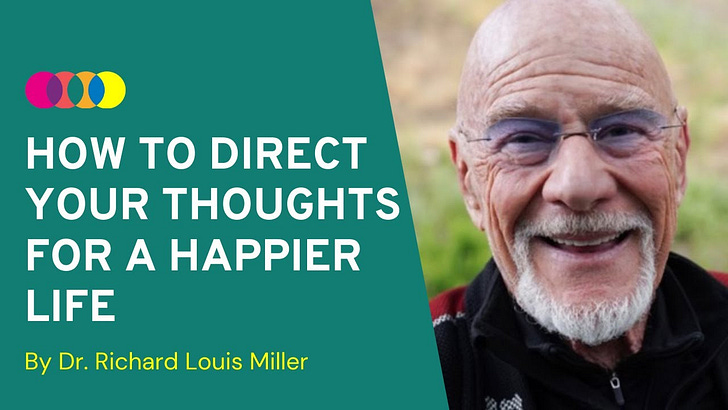Dear Friends,
Here’s a question for you:
Who's really in charge of your thoughts?
If you're like most people, it often feels like your mind has a mind of its own.
Have you ever woken up feeling like your mind is a runaway train, careening down the tracks with thoughts you can't control? You're not alone. In my 64 years as a clinical psychologist, I've seen countless patients struggle with this sense of mental chaos. Intrusive worries, self-criticism, and emotional turmoil can hijack your day without warning.
But I’ve also learned that there is a way to become the conductor of your thought train.
After six decades of clinical practice, I've developed a foolproof method to help you become the boss of your own brain. Let me show you how.
Think about the last time you got a small cut on your hand. Without conscious effort, your body healed itself. You didn't negotiate with each cell to close the wound; you simply willed it subconsciously, and it occurred.
Now, imagine if you could harness that same unconscious power and immediacy to heal your mind. What if you could train your thoughts to automatically shift towards positivity and resilience, just like your skin knits itself back together? With practice, you can develop that same level of command over your mental landscape. The secret lies in understanding the true relationship between you and your mind.
Many of us have been taught to fear "negative" emotions or to suppress unwanted thoughts. But this approach often backfires, leading to more mental turmoil.
The first step in mastering your mind is recognizing that you are not your thoughts.
Instead, we need to cultivate a sense of gentle authority over our minds.
Think of yourself as the observer – the director, the CEO of your mental corporation. Your thoughts are simply employees, sometimes unruly ones, that need guidance and direction. When you truly internalize this concept, you'll find it easier to detach from negative thought patterns and redirect your mental energy.
To use another analogy, think of it as training a puppy. You wouldn't yell at a puppy for chewing a shoe, but you would consistently redirect it to appropriate behaviors. Similarly, when unwanted thoughts arise, acknowledge them without judgment, then firmly guide your mind back to your chosen focus.
To build this skill, I recommend a daily practice of mind direction.
Start small. Start with just a minute or two, four or five times a day, to actively direct your thoughts. It doesn't matter what you focus on – it could be:
counting numbers
visualizing a peaceful scene
repeating a positive affirmation.
The crucial part is that you're consciously choosing the content of your thoughts. This simple exercise builds the neural pathways that allow you to take command of your mind.
As you begin your practice, you might encounter resistance. If your mind is accustomed to running the show, it may rebel against your efforts to take control. Don't be discouraged - this is a natural part of the process. Each time you gently redirect your thoughts, you're strengthening your mental muscles, like building physical strength through repetitive exercise.
You don't need any special equipment or dedicated time - you can do it while waiting in line, during your commute, or even as you're falling asleep at night.
Over time, you'll notice a profound shift in your mental landscape.
Those intrusive negative thoughts that once derailed your day will start to lose their power. Instead of being swept away by a tide of anxiety or self-doubt, you'll find yourself standing firm, able to choose your mental focus with increasing ease.
Finally, remember that this isn't about achieving perfect control or eliminating negative thoughts. That's neither possible nor desirable. The goal is to develop a healthier relationship with your mind, where you're in the driver's seat more often than not.
Golden light,
Dr. Richard Louis Miller
My Books:
Freeing Sexuality: Psychologists, Consent Teachers, Polyamory Experts, and Sex Workers Speak Out
Psychedelic Wisdom: The Astonishing Rewards of Mind-Altering Substances
Psychedelic Medicine: The Healing Powers of LSD, MDMA, Psilocybin, and Ayahuasca
Integral Psychedelic Therapy (co-edited with Jason A. Butler & Genesee Herzberg)



